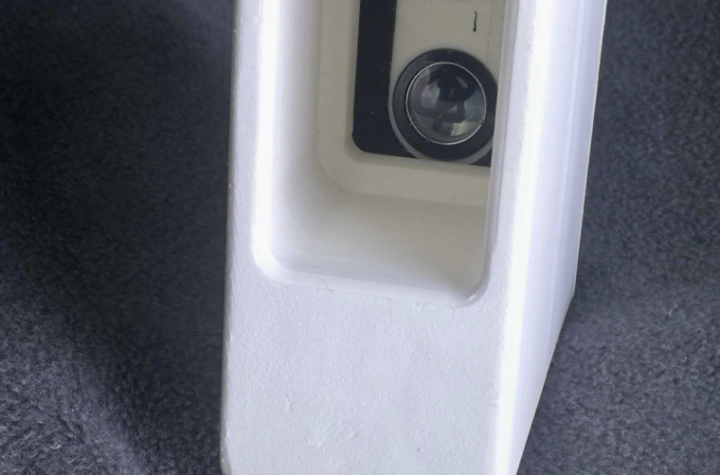
World class processes combined with flexible computer-aided-manufacturing will secure prestigious TS16949 approval and support Quaife’s drive into OEM low volume markets
Specialist driveline engineering company Quaife has invested more than £3.5 million (€4 million) in a state-of-the-art, flexible manufacturing facility designed to provide high performance driveline systems for niche-vehicle programmes. Quaife’s technologies include gearboxes, steering systems and the highly regarded Quaife Automatic Torque Biasing limited slip differential. The company says that its substantial commitment to quality will soon be recognised with the award of TS16949, the international quality standard that has become the benchmark for vehicle manufacturers worldwide. The company already holds ISO9001 and supplies a number of vehicle manufacturers including Ford for the highly-acclaimed RS Focus.
The new 23,000 sq ft (2,136m2) factory is optimised for flexible production in volumes appropriate to niche vehicle programmes, including specialist high performance models and off-highway and military applications. Quality systems use the latest Statistical process control (SPC) and ‘no fault forward’ techniques to ensure efficient, high quality production. Documentation and audit trails can be finalised to match individual customer requirements.
“Our latest investments in computer-controlled manufacturing systems allow us to produce gearboxes and differentials in volumes from a few hundred up to 50,000 per year, as well as a wide range of other specialist steering and transmission components,” says technical director Michael Quaife. “Lots of companies can make five prototypes or five million production parts, but very few can meet the most demanding quality requirements of the OEMs while producing intermediate volumes at economic prices. With the growing importance of niche vehicle programmes, it’s an area where Quaife’s expertise provides a very useful complement to a vehicle manufacture’s existing supplier relationships.”
Quaife has been working with vehicle manufacturers worldwide for almost ten years, providing differentials and other driveline components for Ford, General Motors and Chrysler (including the Dodge Viper) as well as many smaller manufacturers of specialist vehicles. Complementing the manufacturing systems, the company has an engineering capability that allows it to provide a fast turnkey service that includes Computer Aided Design and validation using both virtual and physical test systems. Today, Quaife’s specialists work closely with vehicle manufacturers’ on projects as diverse as high performance niche vehicles and the latest generation of purpose-designed electric trucks.
The first programme to be delivered by the new facility is to supply the Quaife Automatic Torque Biasing Differential (ATB) for the new Ford Focus RS, which uses the system to help put 300bhp through the front wheels with almost zero torque steer. “We worked very closely with Ford on this programme and they were rigorous in auditing our quality systems,” says Michael Quaife. “It’s a tremendous complement to our people that we have not had a single warranty issue throughout our eight year relationship with Ford.”
Similar programmes can be implemented extremely quickly for customers worldwide. A recent production contract took only 15 weeks from receipt of the initial purchase order to delivery of PPAP Level 3 parts to support Job 1. The new facility, located at Gillingham in the UK, complements Quaife’s existing specialist design, manufacturing and logistics centre just 25 miles away in Sevenoaks.
Rigorous quality processes
TS16949 requires a company to be dedicated to ‘continuous improvement, defect prevention, reduction of variation and reduction of waste’. Progress is measured by Key Performance Indicators (KPIs) across a range of manufacturing and related processes. Quaife’s quality programmes are lead by general manager Glen Molineux.
“Our documentation alone is many thousands of pages. This is a huge undertaking, but the benefits have been substantial,” he reflects. “It’s not just that we will be certificated to the most demanding international standards used throughout the automotive industry. We also found that implementing TS16949 procedures drove deeper analysis of our processes, leading to further improvements in efficiency and in particular in environmental performance.”
Molineux points out that in some respects, the standard isn’t really able to cope with small manufacturing runs completed to very high quality levels. “The KPIs can give us trouble,” he says with a smile. “We now produce so little scrap that it takes months to fill a recycling bin – and then it’s mostly the unusable ends of bar stock. It makes measuring improvements in our scrap rate quite challenging.”
The Quaife provenance
Rodney Quaife founded the company that bears his name in 1965 and was soon supplying five speed gear sets for Britain’s two leading motorcycle manufacturers, Norton and Triumph. By 1975 they were producing driveline components for roadcars, including the Ford Escort RS2000, and developing a wide range of motorsport business leading to a Formula 1 victory in 1986 when Gerhard Berger won the Mexican Grand Prix in a Benetton, using a Quaife Automatic Torque Biasing differential. In 2000 they added the European Truck Racing Cup with Caterpillar Truck Racing running a Quaife differential. Since then, the technology has helped secure podium finishes across a wide range of motorsport series.
Original Equipment roadcar programmes have included the first Ford Focus RS (2002), differentials for Chrysler (including the Dodge Viper) and General Motors and various driveline technologies for other vehicle manufacturers that must remain confidential. The Quaife limited slip differential is also increasingly popular with specialist vehicle builders converting standard roadcars for users such as the police and rescue services where it is used to improve off-road capability. Selected Quaife technologies are also available to enthusiasts for aftermarket applications.











More Stories
Arkema focus on battery technology where “anything is possible”
New Syensqo technology for current and future battery generations
EV Charging – ZOOZ Power’s Udi Tzuri on Flywheel Technology, Grid Solutions and Global Expansion